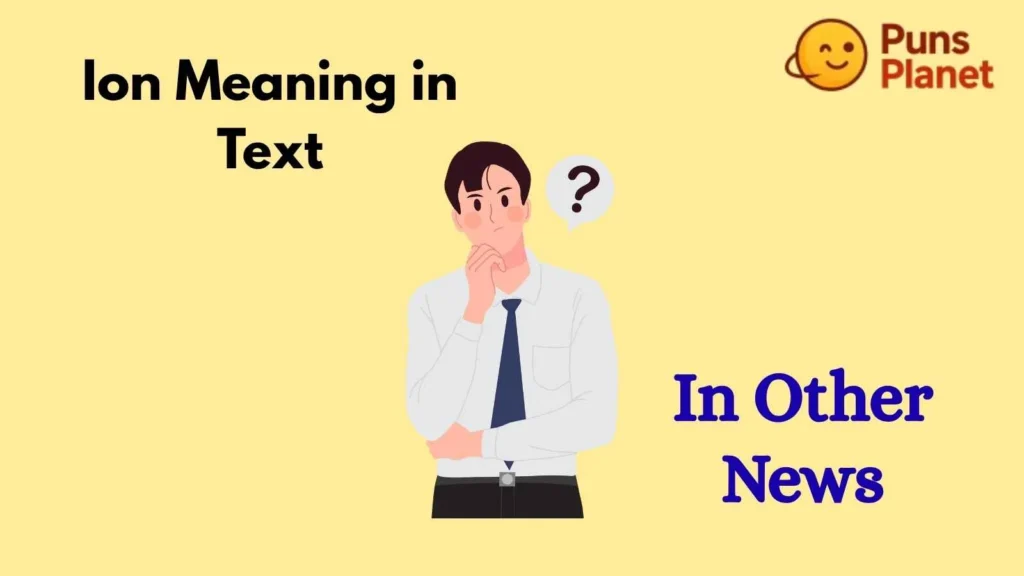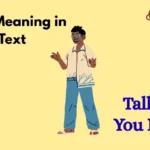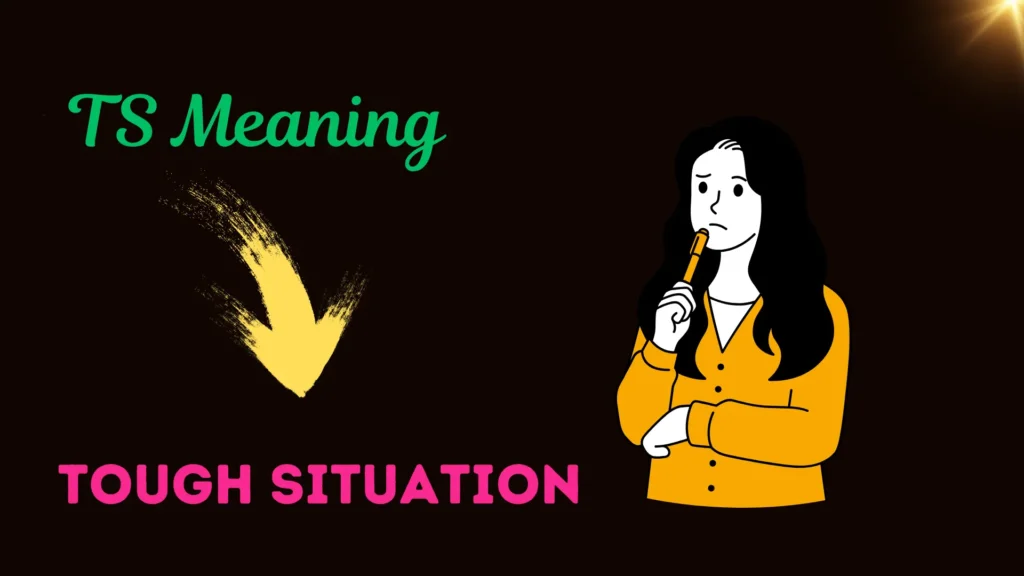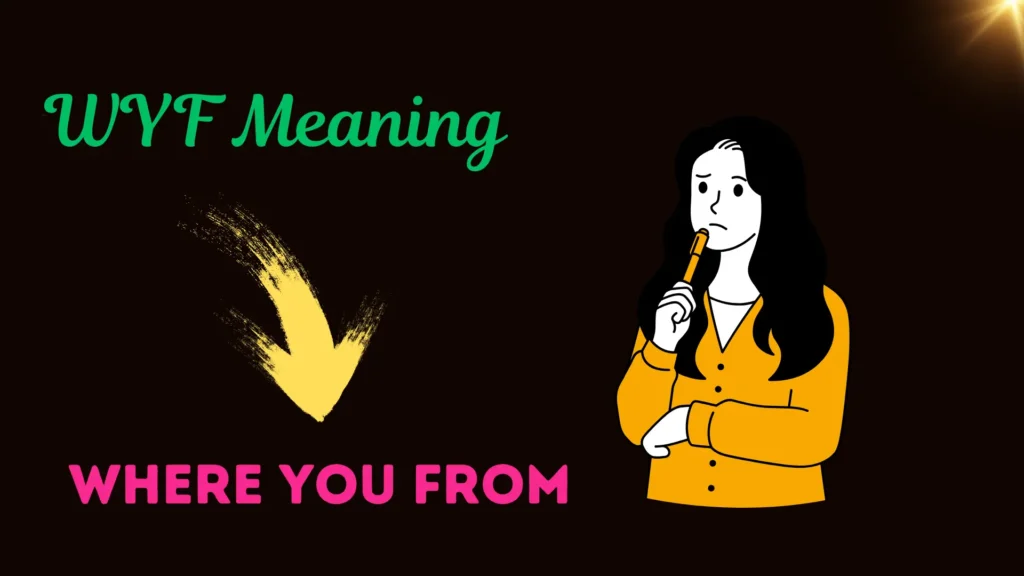When you scroll through messages, threads, or comments and you see ion (in all caps or lowercase), you might think of atoms and chemistry (thanks to the scientific term), or you might simply shrug because you’re not sure what it means.
But in digital communication, “ion” is loaded with meaning. It’s a shortcut, a tone marker, a slice of voice in someone’s chat. It can say “I don’t,” or it can say “in other news,” depending on how it’s used.
And that matters—because language is evolving, and staying literate with these nuances helps you connect better, avoid misunderstandings, and even show your digital fluency.
What Does “ion” Mean in Text?
Let’s break it down clearly:
- ION (capital letters) – Often an acronym for In Other News. For example: “ION, did you see the new trailer?” This usage signals a topic shift.
- ion (lowercase) – A phonetic / slang rendering of “I don’t.” Example: “ion care about that” = “I don’t care about that.”
So context and capitalization matter—two very different uses, both valid online. The key is the vibe of the conversation: casual chat, quick replies, memes or group messages.
Origins & Evolution of “ion”
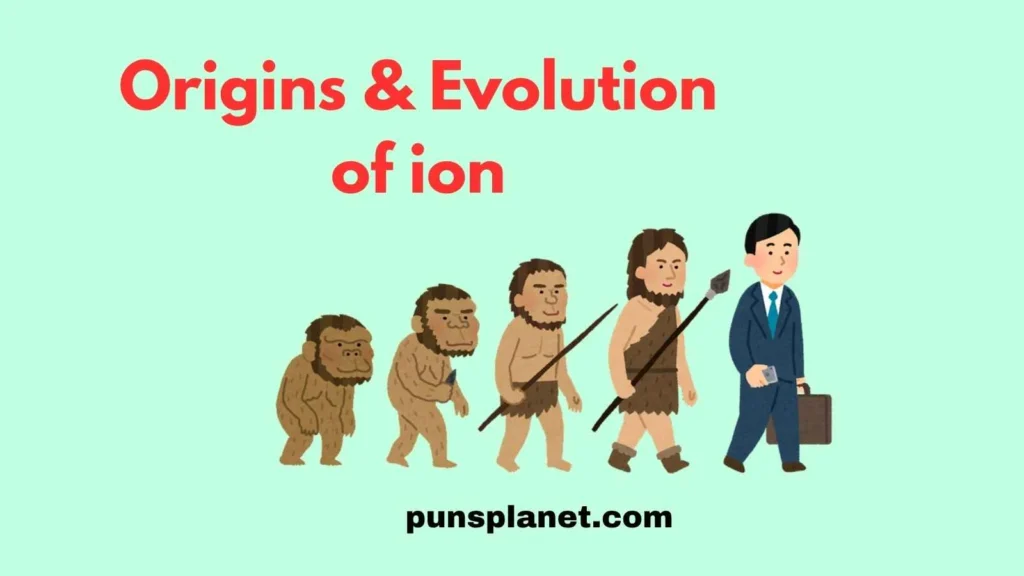
Understanding how “ion” came about gives it depth—and gives you the authority to use or interpret it correctly. Here are some key points:
- The acronym “In Other News” has long roots in journalism and broadcasting—used when a presenter transitions between stories. The acronym ION eventually moved into chat as shorthand for that transition.
- The slang “ion” meaning “I don’t” or “I don’t know” appears to stem from phonetic spellings of speech in African American Vernacular English (AAVE) and internet chat culture—where “I don’t” becomes “ion” when spoken quickly.
- Over time, both usages gained traction across platforms like Twitter, Instagram, Snapchat, TikTok, and messaging apps. Awareness of them helps you stay current.
How to Recognize Which “ion” Meaning Applies
Since there are two main meanings, how do you tell which one is intended? Here are practical cues:
| Clue | Meaning | Example |
|---|---|---|
| All‐caps “ION” at the start of a sentence or clause | “In Other News” → topic shift | “ION, the new cafe just opened down the street.” |
| Lowercase “ion” used in place of “I don’t” or “I don’t know” | Negation/slang | “ion even remember what happened last night.” |
| Verb follows “ion” (“ion want”, “ion care”, “ion know”) | Slang “I don’t” meaning | “Are you going?” “nah, ion want to.” |
| Used to pivot or introduce unrelated info | Transition “In Other News” meaning | “We finished the project. ION, have you seen the updates?” |
These signals help you decode what the sender means and use it yourself appropriately.
Examples of “ion” in Real Conversations
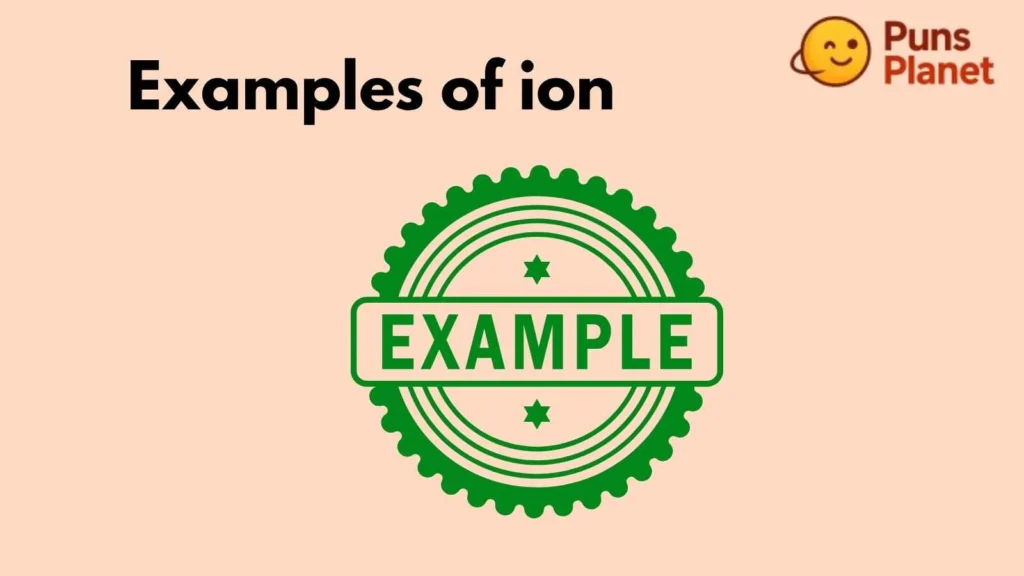
Let’s look at real-life uses to solidify how it works:
- Slang “ion” (I don’t): “You coming to the gym tomorrow?” “ion feel like lifting atm.”
- Transition “ION” (In Other News): “The meeting ran over time. ION, lunch is on me today.”
- Mixed usage: “We lost connection halfway through. ion even know why. ION, let’s move the call to later.”
Notice how the tone shifts and how the context gives away which meaning is being used. The beauty is in the brevity and informality—it feels like you’re having a real, live chat.
Why Slang Like “ion” Gains Popularity
There are a few key reasons why terms like “ion” spread rapidly in digital spaces:
- Speed & convenience – Typing “ion” is faster than “I don’t” especially on mobile.
- Identity & tone – Using the slang signals belonging to a peer group or a digital generation; it sounds casual and authentic.
- Platform necessity – Social platforms often reward brevity, so short forms win.
- Transition utility – “ION” functions as a smooth shift tool—helpful when chats move quickly or topics bounce around.
As an expert content writer, I always flag that this kind of slang is part of digital literacy—knowing it helps you read, understand, and craft modern online communication effectively.
When “ion” Might Be Inappropriate
Even popular slang isn’t always suitable. Here are situations when you should avoid using “ion”:
- Formal communication: Emails, job applications, official documents—“ion” will look unprofessional.
- With audiences unfamiliar with it: Older generations, cross-culture contexts, or formal brand messaging. They may misunderstand.
- Where clarity matters: Instructions, legal texts, education—slang can cause confusion.
Using slang well involves not just knowing its meaning—but judging context and audience. That’s part of writing with expertise and trustworthiness.
Variations & Related Slang You Should Know
“ion” doesn’t live in isolation. It shares space with other digital shorthand and slang. Here are some variations and closely related terms:
- ionn / ioon: Extended forms sometimes used for emphasis: “ionn wanna go.”
- “ion even”: e.g. “ion even care what they said.”
- BTW (“By The Way”): Another common transition phrase like “ION.”
- IMO / IMHO (“In My Opinion” / “In My Humble Opinion”): Similar lower-case slang usage but different meaning.
Understanding these helps you navigate the broader soundtrack of digital chat—so you’re not caught off guard.
How to Incorporate “ion” Appropriately in Your Own Writing
If you want to use “ion” in your own informal writing or social media captions, here are best practices:
- Match the tone of your audience: If it’s laid-back chat with friends, “ion” might be fine. For more formal audience, skip it.
- Use correct form:
- For “I don’t”: lowercase “ion” → “ion care.”
- For topic shift: uppercase “ION” → “ION, did you know…?”
“ion” in Brand & Social Media Strategy

As a content writer helping brands or influencers, I often advise how slang like “ion” can be leveraged—or avoided. Here’s how:
- Use “ION” for engagement shifts: Example caption: “Big news coming soon. ION, saved a spot for you tonight!” This can signal fresh content.
- Use “ion” (I don’t) carefully for authenticity: If your brand voice is young, casual, and conversational, you might spark connection. But ensure it fits your brand’s identity.
- Audience segmentation: If you’re targeting Gen Z or younger audiences who are comfortable with chat slang—“ion” could work. Otherwise, maybe stay more neutral.
- Context clarity: Always tie slang into content that still communicates clearly—don’t use it just for trendiness. That’s crucial for trust and authority (E-E-A-T!).
Common Misunderstandings & Mistakes to Avoid
Here are mistakes people often make when encountering or using “ion”:
- Reading the scientific meaning first: When you see “ion,” your mind might leap to chemistry (charged atoms)! But in chat, it’s often slang.
- Assuming “ion” always means “I don’t”: If caps and context point to “In Other News,” using “ion” as “I don’t” could confuse readers.
- Using in formal contexts: This is a big no. It can damage credibility.
- Ignoring audience comprehension: If your readers don’t know the slang, they may misread or not resonate.
How “ion” Fits Into the Bigger Picture of Modern Digital Language
Zooming out: “ion” is part of a wave of linguistic shifts driven by digital communication, texting, memes, social media, and peer group identity. Here’s how it fits:
- Brevity & speed: Mobile messaging is fast. Words shrink. “I don’t” → “ion”.
- Voice & tone: Slang carries attitude. Saying “ion know” adds a casual tone.
- Group identity: Using digital slang signals membership, familiarity.
- Adaptive language: Language evolves online—just as “LOL,” “TBH,” “OMG” did. “ion” joins that family.
From an SEO & content strategy point of view, knowing such slang matters because it impacts how people search, how they resonate with copy, how they engage in comments—and how you craft tone for your audience.
Quick Reference: “ion” Cheat-Sheet
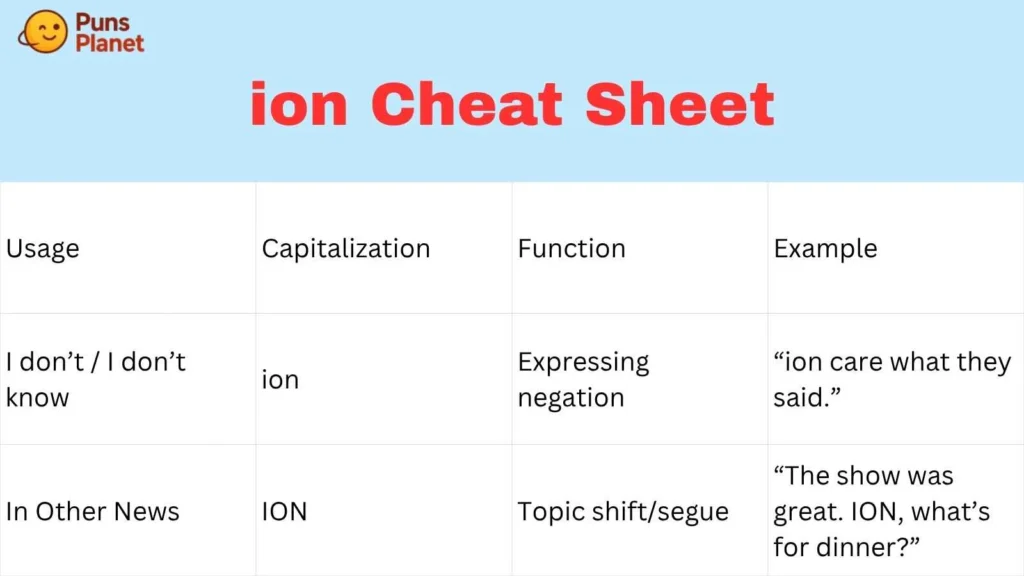
Here’s a quick cheat-sheet you can refer to when you see or want to use “ion”.
| Usage | Capitalization | Function | Example |
|---|---|---|---|
| I don’t / I don’t know | ion | Expressing negation | “ion care what they said.” |
| In Other News | ION | Topic shift/segue | “The show was great. ION, what’s for dinner?” |
FAQs:
Q1: Is “ion” considered proper English?
Not in formal writing. “ion” is slang, informal, conversational. Use it among friends or in casual posts—not in academic or business texts. 📌
Q2: Can “ion” mean something else besides “I don’t” or “In Other News”?
In rare cases, yes—it could be used for stylistic effect or as part of a meme. But the two meanings above are the most common.
Q3: How should I respond if someone writes “ion” in a message? Do I use it back?
It depends on your relationship and tone. If the chat is friendly and informal, using it back can maintain the vibe. If you’re unsure of the tone or the recipient, stick to clearer language.
Q4: Does using “ion” reduce credibility in digital content?
In professional content, yes it can. In casual content, it might enhance authenticity. The key is matching your tone to your audience. Using slang inaccurately or in the wrong context can harm trustworthiness.
Q5: How often should I use “ion” in my social posts?
Use it sparingly and strategically. Overuse makes it feel forced or bothersome. A well-placed “ion” can add voice; too many dilute the effect.
Conclusion:
To wrap up: the word ion in text can mean one of two things—either a casual version of “I don’t” (or “I don’t know”), or an acronym “In Other News” used to shift topics.
Understanding which depends on context (capitalization, sentence structure, tone). Using it thoughtfully can help you align with digital speaking styles, engage younger audiences, and keep your content fresh. But using it in the wrong place can confuse or undermine credibility.

